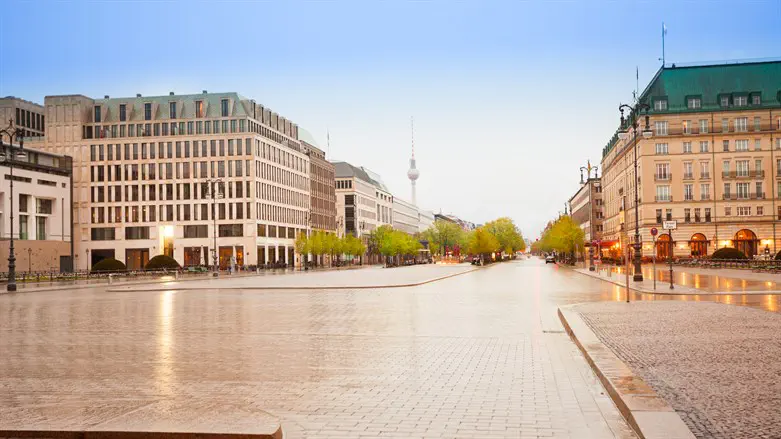
Germany has faced a "tsunami of antisemitism" since Hamas' attack on Israel on October 7 of last year, the government's commissioner for the fight against anti-Jewish hatred, Felix Klein, told the AFP news agency.
Klein said that "open and aggressive antisemitism in all its forms" was "stronger than at any time since 1945", both in Germany and worldwide.
He added that "since October 7 we have experienced a tsunami of antisemitism" and that the Hamas attack had led to "further breaches in the existing defenses in our society" against such prejudice.
Klein noted that in the crime statistics for 2023 there were around 5,000 antisemitic incidents, of which "half were committed after October 7".
Klein told AFP that alongside "classic German antisemitism of a right-wing kind", it was also on the rise in left-wing and Islamist milieus and "alliances between different currents".
Klein called on civil society "under no circumstances to allow Jews to be made responsible for what is happening in the Middle East", adding that antisemitism was a "poison for social cohesion", he said.
However Klein maintained that Germany was "well-equipped" to deal with antisemitism compared to other countries, pointing to institutional changes which were now "bearing fruit".
Incidents of antisemitism in Germany since the October 7 attack included a synagogue in the capital of Berlin being firebombed by two assailants.
In late October, police in the western German city of Essen arrested a man who plotted to attack a pro-Israel demonstration.
Germany has also seen a rise in anti-Israeli demonstrations since October 7.
These protests included a protest at the Humboldt University’s Institute for Social Sciences in downtown Berlin, similar to the anti-Israel campus protests that have swept across the US in recent months.
In June, police in Berlin temporarily detained 69 people at pro-Palestinian Arab protests involving several hundred demonstrators.
